Farhad Dalal, Course Convenor
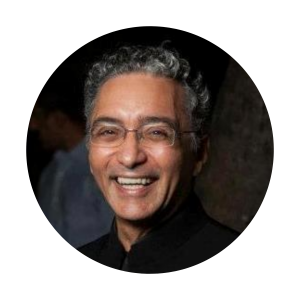
Farhad Dalal’s first degree was in Physics. His first psychotherapy training in the early 1980s was in the Humanistic Traditions with the Minster Centre in London. He then trained with the Institute of Group Analysis (London), qualifying in 1991. He obtained his PhD in 2001. Previously he was an Associate Fellow on the DMan programme at the University of Hertfordshire’s Business School and Visiting Professor at the Open University in the Netherlands.
He has published numerous papers on a number of subjects that include psychoanalysis, group analysis, racism, politics and ethics, as well as four books: Taking the Group Seriously (1998) , Race, Colour and the Processes of Racialization (2002), Thought Paralysis: The Virtues of Discrimination (2012), and CBT – The Cognitive Behavioural Tsunami: Managerialism, Politics and the Corruptions of Science (2018).
Dr Tija Despotovic, Training Analyst
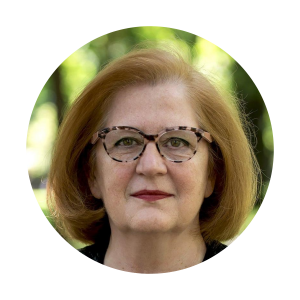
Dr Tija Despotovic worked for many years as a psychiatrist at the Psychiatric Clinic of the University Clinical Centre Serbia, Belgrade. She was involved in inpatient and outpatient individual and group psychotherapy and with the Therapeutic Community. She has worked in private practice with both individuals and groups. Papers she has written include on psychic pain, mourning on the individual and societal level, as well as psychotherapy with difficult patients.
Tija was trained in Group Analysis during the early 1990s in Belgrade with IGA London and is one of the founders and former chair of Group Analytic Society Belgrade (GASB). She is Chair of the Group Analytic Training in GASB, conducted GA training abroad in Banja Luka, Bosnia. She was trained in Psychoanalysis in the late 1990s by IPA BPD. She is a training analyst for the Belgrade Psychoanalytic Society (IPA). Chair of the EFPP Conference in Belgrade, May 2018 (The Challenge of Social Traumata -Inner Worlds of Outer Realities).
Tija strongly believes in the creation and development of international collaborations within the group analytic field which she has supported in her various roles as International liaison of the EGATIN Committee, as a chair of the International development Subcommittee and GASI Summer School Coordinator at the GASI MC.
Angelika Gölz, Training Analyst
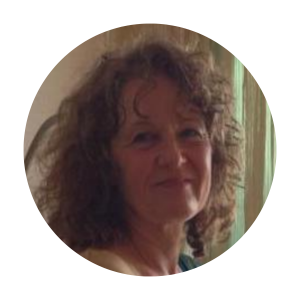
Angelika Gölz began working therapeutically with people whilst studying ‘Social Education’ in Berlin in the early 1970’s. Her first role was counsellor to parents at a Family Therapy Centre. In 1977 she came to England to study Biodynamic Psychotherapy at the Gerda Boyesen Centre, a form of therapy working directly with the body. For several years Angelika taught at the Gerda Boysen Centre and as visiting teacher at training courses in Germany.
Her deep interest in the relational aspects of the work led her towards a more psychoanalytic approach in her work, where the psychotherapeutic relationship is seen as the container for all that is explored. This led her eventually to study Group Analysis with Group Analysis South West (Bristol). She qualified in 2003 and is now also a Member of the Institute of Group Analysis (London). Angelika’s work has included consultation to teams in crisis, supervision to mental health teams, and also supervision to people working with individuals, groups, and training courses. She teaches regularly on the clinical psychology doctorate program in Plymouth University, and also on other psychotherapy courses. For 12 years Angelika also worked with outpatient groups in the NHS.
David Glyn, Supervisor
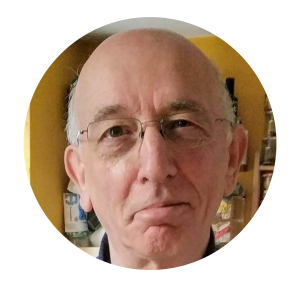
One time film-maker, David trained as a Group Analytic Psychotherapist, at Goldsmiths College (University of London). He has worked in many institutions, as a psychotherapist, and supervised colleagues and trainees, working with groups. His experience as a clinician has lately centred on working with young people in a University setting. He lives in London, is married with a son, two daughters, and two grandchildren. David is currently President of the Group Analytic Society International.
Dr Ivanka Dunjic, Supervisor
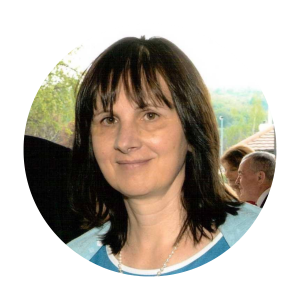
Dr. Ivanka Dunjic, psychiatrist, psychoanalyst, and group analyst, works full time in private practice in Belgrade with individual patients and groups. She is a founding member of Belgrade Psychoanalytic Society and Group Analytic Society Belgrade. For more than 25 years now, she conducts training, theoretical seminars, and supervision for future psychoanalysts, psychotherapists, and group analysts in Belgrade and other parts of Serbia. She is an author of chapters on Freudian psychopathology as well as Group Analysis in a textbook on psychodynamic psychiatry. She has presented papers at EFPP and EGATIN conferences, as well as the GASI summer school.
As a child, she was always interested in discovering what lies behind the obvious. She grew up wanting to become a psychoanalyst but ended up becoming a psychiatrist as Yugoslavia was a communist country and psychoanalysis was not yet officially accepted. During her first job in a psychiatric hospital, her colleagues helped her enter a small private circle of people interested in psychoanalysis. She started her personal analysis with an old analyst, descending from Vienna circle.
She embraced the idea of interdependence between individuals, groups, and society in all areas of her work through her group analytic training in Belgrade. She is still passionate about discovering this connectedness between different fields. Group Analysis and Psychoanalysis have helped her understand and think about the dramatic social changes that were happening in Yugoslavia at that time (90s) – civil war, fragmentation of the country, internatiol sancctions, NATO bombing of Serbia – and also to stay connected to the outside world.
Andy Downie, Course Consultant
